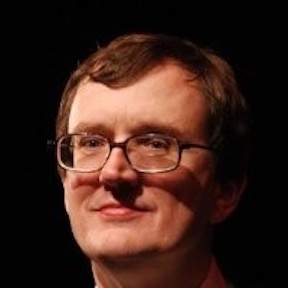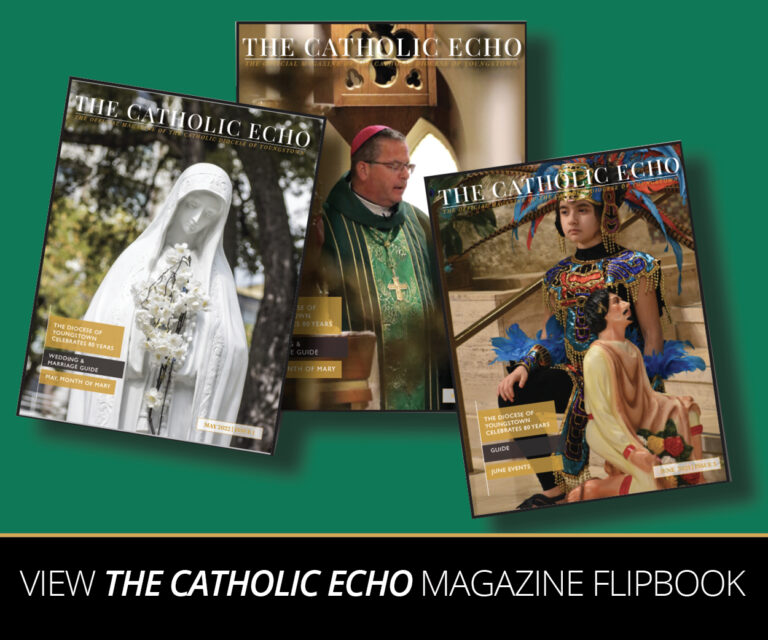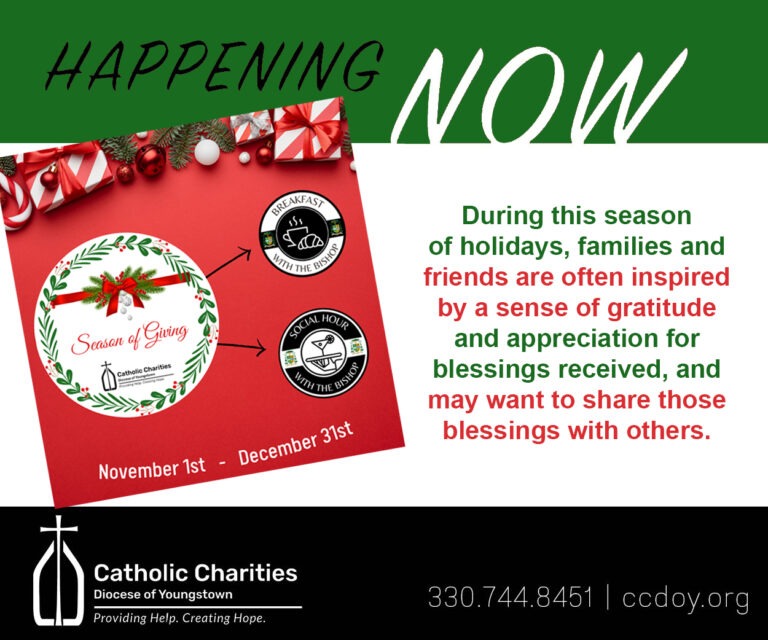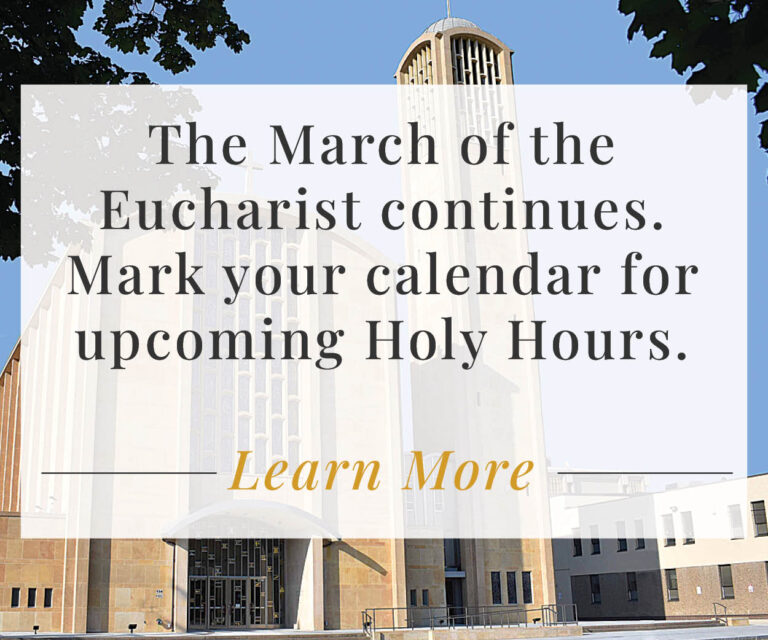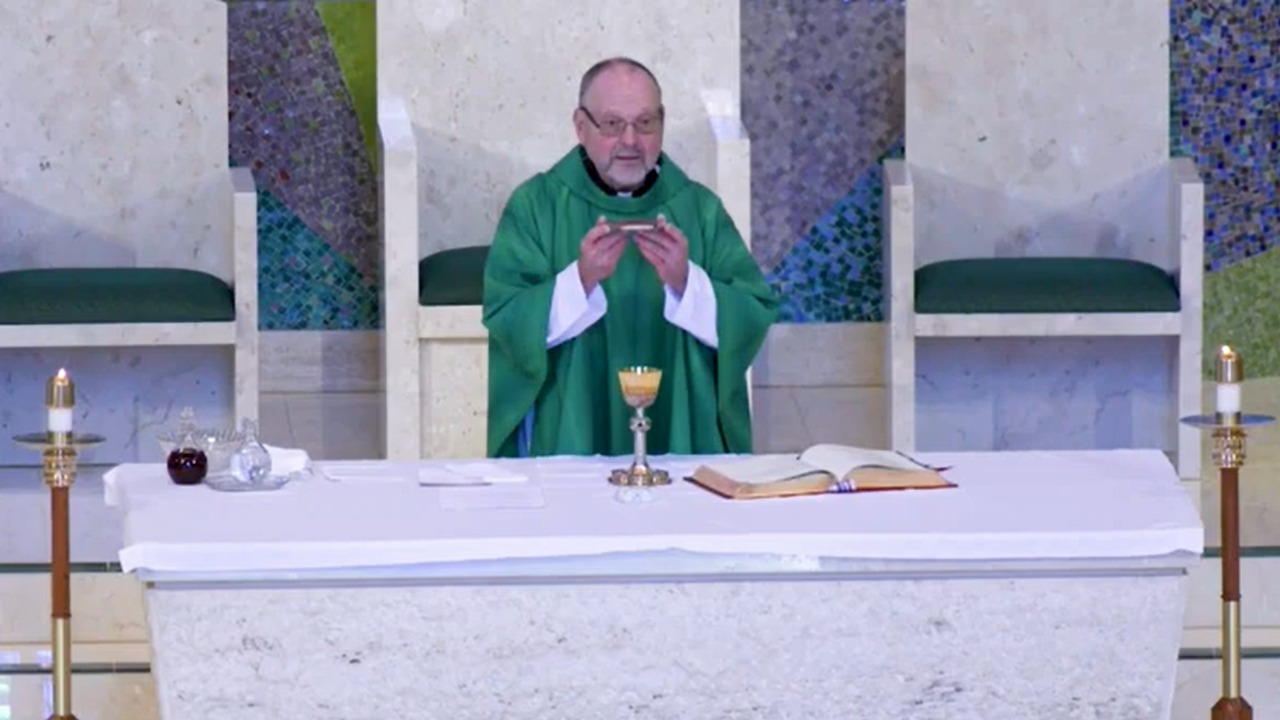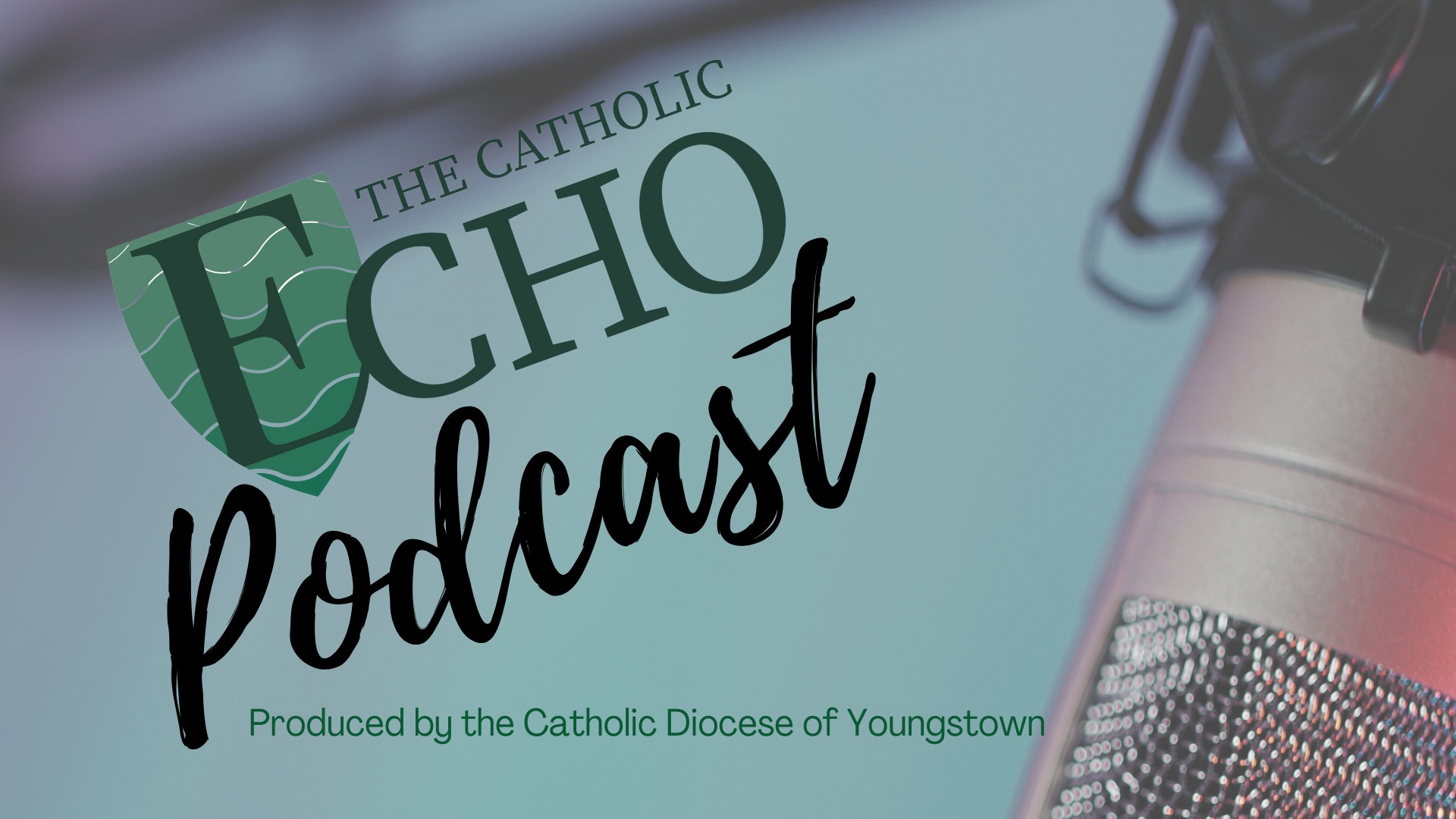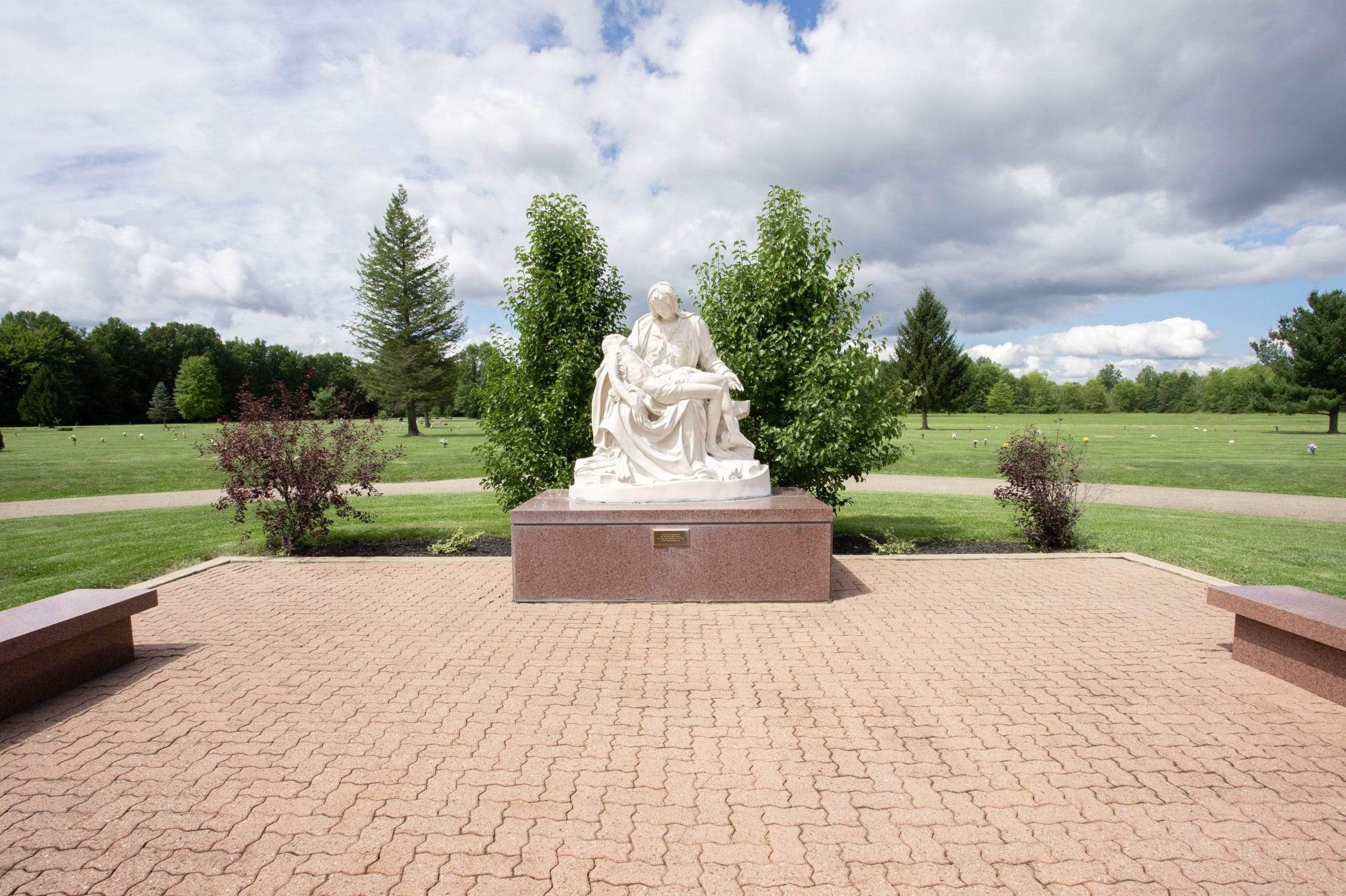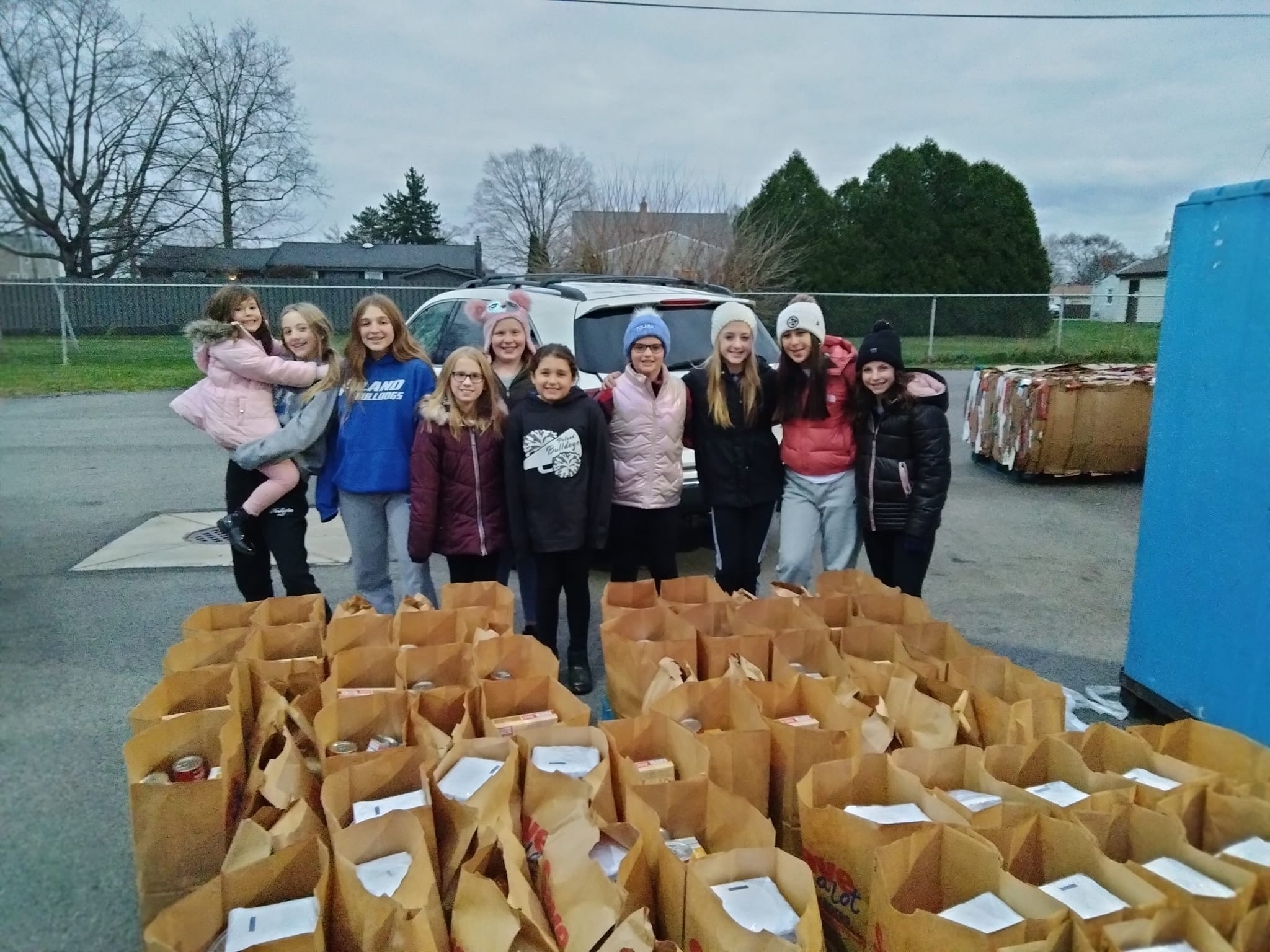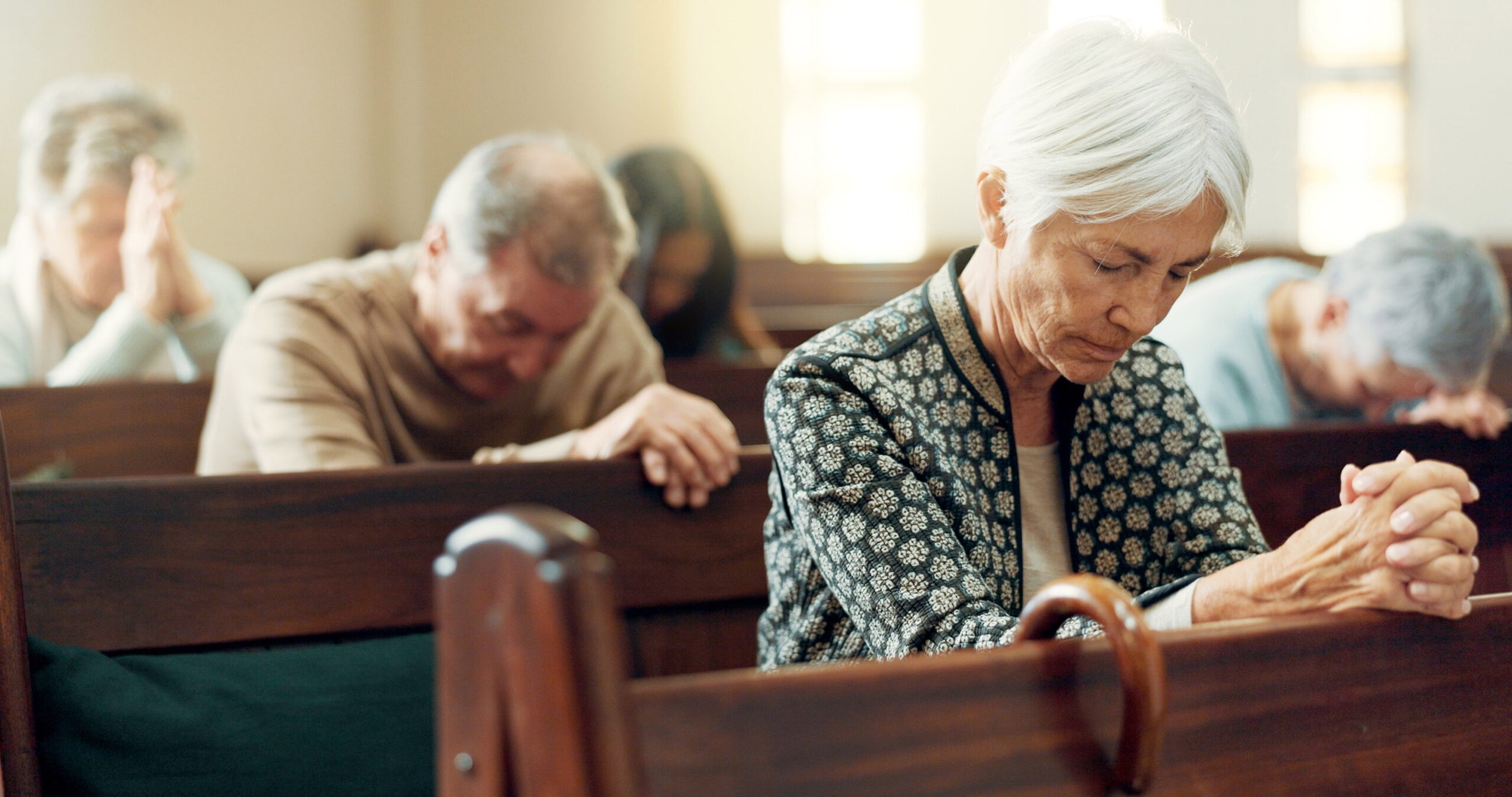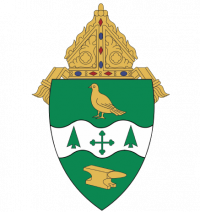“At a very young age,” recalls retired pastor Father John Zapp, he concluded that he wanted to become a priest, “and I never wanted to do anything else.”
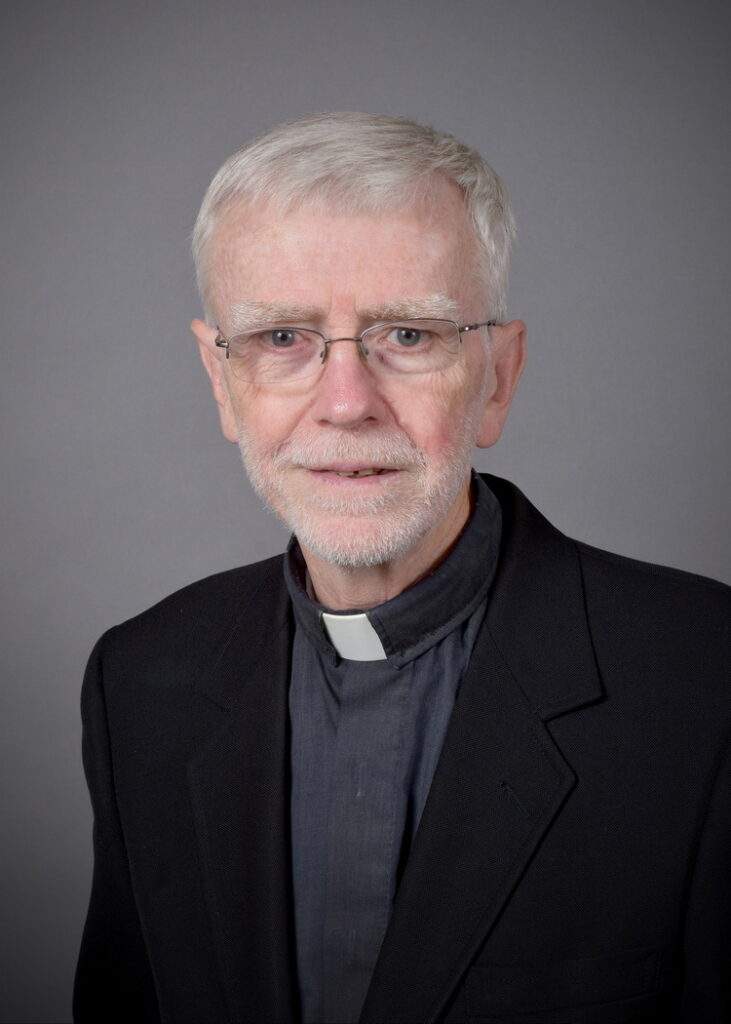
Now, after having served more than 50 years a priest for the Youngstown Diocese, Father Zapp looks back and says plainly: “I’d do it all again.”
Last year, Father Zapp retired as pastor of Holy Spirit Parish, Uniontown, having served in that role 31 years. His prior priestly service included tenures as associate pastor at two different parishes, numerous campus ministry assignments, and one other pastorate.
Father Zapp now resides at Emmaus House, a diocesan retirement residence for priests.
The oldest of ten children born to Raymond and Florence Maickel Zapp, he was born in Rockville Centre, Long Island, N.Y. When he was about three, his family moved to Cleveland. “My father was from Cleveland and he wanted to be close to his father.
“We were a very Catholic family,” Father Zapp said. Growing up in Cleveland, he attended Our Lady of Good Counsel School and graduated from St. John Cantius High School in 1964. “I was an altar server and I was probably most influenced by the priests in my parish.”
“While exploring the prospect of a priestly vocation, I was open to different dioceses.” An interview with Msgr. Breen Malone, who was then vocations director for the Youngstown Diocese, led him to pursue studies to become a priest for the Youngstown Diocese.
“I see everything that happened as part of God’s plan for me to serve as a priest of the Youngstown Diocese,” Father Zapp remarked.
So, he enrolled first at St. Gregory, and later Mount St. Mary’s of the West seminaries – both in Cincinnati. His experience of seminary life proved both a challenge and blessing.
“In the early years, it was very regimented,” reflecting the mood of the larger Church, Father Zapp said. Yet it was a period of transition for the Church as the influence of the Second Vatican Council grew.
In addition, he cited the influence of his spiritual director, Father James McWilliams, who reflected the movement toward greater openness that was growing since Vatican II. “I would not be a priest today without him.”
Father Zapp also cited a growing camaraderie among the seminarians – not only among his classmates but also among many of the upperclassmen, who came from different dioceses. “I found myself being formed as much by my classmates as by my professors.”
After completing his seminary training, Father Zapp was ordained a priest May 27, 1972, in St. Columba Cathedral by Bishop James Malone, whose influence Father Zapp also cited for his priesthood.
His first assignment was as associate pastor of Alliance Regina Coeli. “That was a great assignment. It was a very welcoming community,” which was hospitable for a newly-ordained priest. “There was also a parish school and I enjoyed teaching the children once a week.”
In addition, his time at Regina Coeli also introduced him to campus ministry – at then-Mount Union College – which, like Regina Coeli, is located in Alliance.
Father Zapp enjoyed interacting with the Mount Union students as well as helping develop the college’s Newman Club.
Though he was sad to leave his first parish, Father Zapp soon found a home at his next assignment, Salem St. Paul Parish in 1974, serving as associate pastor.
“The people there were good and I was involved in the youth ministry,” and he enjoyed working with young people in the parish, Father Zapp said. His assignment also provided continued opportunities for campus ministry with the Salem Campus of Kent State University.
In 1978, Father Zapp was appointed chaplain at then-Walsh College, North Canton, but was in residence at Canton St. John the Baptist Parish. He described his time as Walsh as pivotal.
“It was very freeing,” allowing him to interact with students and faculty with little structure to be concerned with. In addition, “because I had summers off, I was free to pursue graduate studies at the University of San Francisco.”
There, he earned a master’s degree in pastoral theology. “The faculty was excellent, but it was also an opportunity to meet priests and religious from all over the U.S. and from other countries,” broadening his experience of Church.
In 1981, Father Zapp accepted the additional responsibility of diocesan director of campus ministry. “That brought me into contact with others who were in campus ministry around the U.S.,” further broadening his experience of Church.
In August 1983 he was named pastor of the Kent State University Newman Center but retained his position as diocesan campus ministry director.
“In some ways, it was the best of both worlds,” because the parish functioned both as an establishment of campus ministry, serving students at Kent State, and as a parish in the more traditional sense – with a community that included faculty and other non-students.
“It was a challenge but a good challenge” in responding to the group of student-parishioners, which would change to an extent every year, as well as to the segment of parishioners whose membership was more steady.
Father Zapp was appointed pastor of Uniontown Holy Spirit Parish in 1991. Again, as in in his other parish assignments, he liked the people and found welcome.
In particular he noted that the parishioners were active and took ownership of much of the ministry of the parish, Father Zapp said, as well as appreciating in the wonderful music ministry.
As he looks back on his last half-century, he finds that the priesthood has changed since he first entered the seminary, with priests being active in collaboration with each other and with their parishioners.
“It has made for a more joyful experience,” Father Zapp said.
Though he said that there is nothing specific that he dislikes about being a priest, “there are some things that I enjoy less than others,” such as some of the administrative tasks.
What he likes best about the priesthood, Father Zapp notes, is that “I love how the people trust you and welcome you into the most sacred moments of their lives – the joyful, the sorrowful, the painful.” Many of those constitute “God moments,” where people are most open to grace.
During his retirement, Father Zapp said, he is trying to discern how to best spend that time. “It is a time of being more than doing,” which contrasts with his years of priestly service.
“I’m spending more time in prayer, in reading, and in traveling to visit friends,” Father Zapp said. He is also enrolled in a program to prepare to become a spiritual director.
“I think of a priest friend of mine who, when he retired, said that ‘I am preparing myself for the next stage in the journey,’” Father Zapp said. “That is what I find myself doing and I’m wondering what that will be like.”
